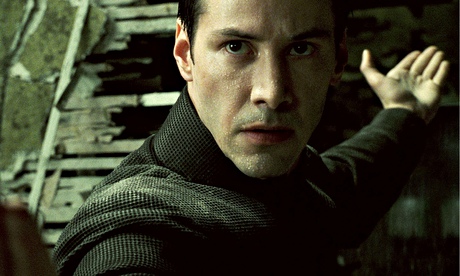
I have always found it difficult to get in touch with the spiritual notion that the world we experience is nothing more than a dream.
I can understand the concept that we create the world in our own image and that when we change our mind, the world around us changes also.
But as I get older, I feel this on a fundamental level. My first experience of this sense of unreality in which we live was walking through London's Canary Wharf several years ago, watching the thousands of bankers and finance workers walking purposefully from one meeting to the next.
It felt like a scene out of the film, The Matrix. The whole place smelt of power and longevity, but I had the strong feeling that the world had already moved on and it was only the belief of the people who worked there that kept this financial powerhouse intact. Then came the financial crash.
My most recent experience of the dreams we create for ourselves came at the Sustainable Brands conference in San Diego. I salute those executives who are working tirelessly within major corporations to raise awareness among their colleagues of the need to respond to key challenges such as climate change, resource scarcity and slave labour.
And yet, I also see how easy it is for them, within their frame of reality, to come to the false conclusion that they are driving radical change.
Time and again, the participants at the conference in San Diego heard brands talk about how they are moving from doing less harm to becoming an active force of positive change in society.
This sense of momentum was magnified by the fact that well over a thousand sustainability professionals and marketers from major brands were all telling the same story.
But stand back and one can see that this is a mere shadow of the truth. By seeking only to temper the current destructive economic paradign, rather than seeking to transform it, they (paradoxically) only strengthen it.
It is easy to fall into this trap. Because we have been raised in the current system, we unconsciously believe it is the natural order of things - rather than a social construct we can change. The economic system is like a mother and we, the babies are fearful of what would happen if we abandon her.
When it came to my turn to speak at the Sustainable Brands conference, I used the metaphor of The Truman Show to suggest that the very framing of their reality is preventing true transformation from taking place.
For those who don't know the iconic film, the key character played by Jim Carrey has lived his entire life unknowingly inside a synthetic world, located inside a giant dome that functions as a mega TV studio. Truman's family, neighbours and colleagues are all actors.
Even when Truman realises his life is a fraud, he is initially reluctant to escape because of the fear of what lies beyond. But eventually he takes courage into his hands, and fights his way to the edge of the dome and then out through a doorway into the 'real' world.
This reflects on the options we all face. We can carry on living this dream, which could lead to devastation on an unimaginable scale, or we can help create a just world within ecological limits by piercing through the limitations of our current beliefs.
Recognising the need for a new economic system is very much on my mind as I prepare to facilitate a meeting next week with nearly 30 global leaders in sustainability, ranging from Rajendra Pachauri, head of the Intergovernmental Panel on Climate Change, to Georg Kell, executive director of the UN Global Compact.
Our aim is not only to work out how to change the current mindset of society around the economy but also to develop a meaningful strategy to help us move towards a new era.
The following week I go on a leadership training course led by Erica Ariel Fox, a lecturer in negotiation at Harvard Law School and a senior adviser to McKinsey Leadership Development.
After years of research, she has found that it is only by searching deep within ourselves that we can make meaningful change in the world.
She refers to the fact that before Roger Bannister broke the four minute mile in 1954, it was thought to be impossible. By 1957, 16 more runners had achieved the same milestone. Nowadays that figure stands at more than a thousand.
She says: "Before the broader organisation can start believing that the impossible is possible, one person or a small number of people must embrace a new perspective and set out to disprove the old way of thinking."
So to those of you who are working against the tide to bring a new economy into existence, hopefully history is on your side.
Join the community of sustainability professionals and experts. Become a GSB member to get more stories like this direct to your inbox

